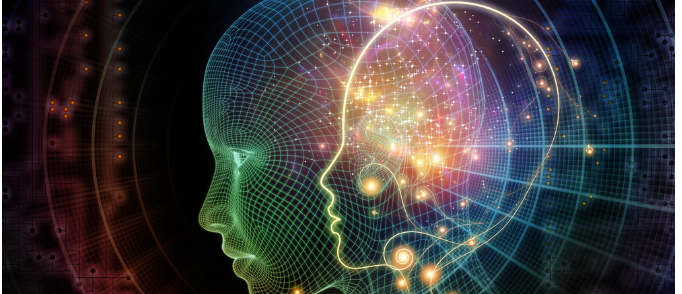
'Consciousness' Philosophic, Mystic, and Scientific view in Singularity.
Rene Descartes, Chalmers, Nagel and other great minds of their time have tried to define Consciousness. In different cultures, it has been defined differently. Medical science attributes it to cerebral activity and describes it as a state of being aware of oneself and surrounding. Physics uses it as a defining boundary between animate and inanimate objects. While in many religions, it has been defined as ‘soul’. The traditional definition of consciousness raises more questions than it answers like if consciousness is only restricted to cerebral activity, then does consciousness dies when a person dies? Energy is required for the functioning of the brain. In the traditional view, as we consider consciousness as an attribute of the mind, this means that energy is also required for consciousness; Does this mean that consciousness is a form of energy or signal? In both cases as per Einstein’s famous equation ( E=Mc^2), energy can not be destroyed. It can be transformed from one state to another. So what was this earlier state that got transformed into consciousness? Also, does one person’s consciousness differ from another person?
Science alone can not define consciousness. A mechanistic and fragmented view of consciousness can not take us in the right direction. We need to bring the observer into the picture to dive deeper. To understand the real nature of consciousness, we also need to look at the intersection point of philosophy, mysticism, biocentrism, and quantum physics. This common point will provide us the right path to define consciousness.
As per ancient Indian classics and according to many philosophers, consciousness does not belong to a person. It is universal, and everyone is connected to this universal consciousness. What part of consciousness one can access depends on what type of memory that person has accumulated. Memory here does not only mean intellect; Intellect is just one part of memory. Memory can be divided into genetic, evolutionary, atomic, and Karmic. Every cell in our body has a phenomenal memory, and its collective memory is far greater than the memory accumulated by our mind. There are other dimensions of memory and intelligence as well. In a nutshell, other than genetic memory, life experiences of a person and approach towards life define how much consciousness one can access which invariably defines the quality of a person’s life.
When a human life takes its form, we consider that a child has started having consciousness, but the reality is that the instrument of intellect and mind has started comprehending the consciousness.
Padamshree awardee Dr. Subhas Kak, who is Regents Professor at Oklahoma State University, writes, “Consciousness is pure, eternal and infinite: it does not arise nor cease to be. It is ever there in the moving and unmoving creatures. The manifestation of the omnipotence of infinite consciousness enters into an alliance with time, space, and causation. Thence arise infinite names and forms. The universe exists in infinite consciousness. Infinite consciousness is unmanifest, though omnipresent, even as space, though existing everywhere, is manifest.”
Consciousness is not within ourselves. It is not something that we have; instead, it is something that our mental faculties perceive. Consciousness is all-pervasive and universal. Our brain is like a receiver that receives the part of it. Consciousness is always there, but the mind and body are required to perceive it. Once we understand this fact, new doors of possibilities will open to explore the unknowns.